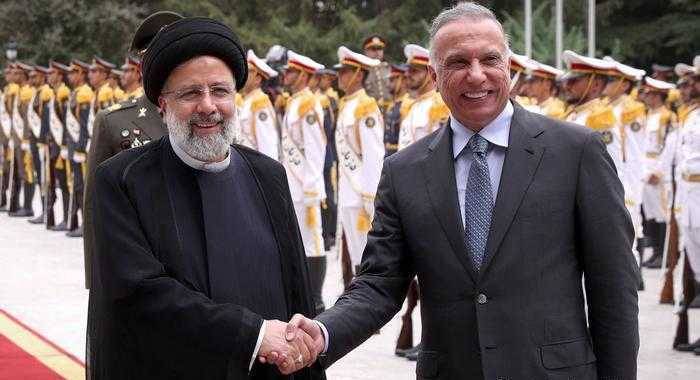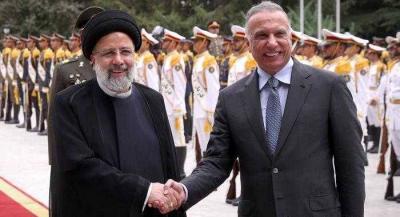Iraqi Prime Minister Mustafa al-Kadhimi has succeeded in his efforts between Riyadh and Tehran, as the two capitals are nearing a diplomatic plan to break the ice after months of discussions that Baghdad kept completely secret. During this period, both sides (Iranian and Saudi) have limited themselves to brief, positive statements without any details, in an effort to ensure success. Notably, since Baghdad revealed the first round of discussions between Riyadh and Tehran in April 2021, all parties involved have not provided timelines for the completion of their work, allowing Baghdad ample time to accomplish its mission.
Following al-Kadhimi's recent visits to Riyadh and Tehran, estimates from Tehran surfaced indicating that a high-level meeting between the two sides could take place in Baghdad at any moment. These sources suggested that al-Kadhimi might conduct another round of visits between the two capitals shortly or travel to one of them, emphasizing that his upcoming move is no longer tied to President Joe Biden's visit to Jeddah, as the circumstances between the two parties have matured. This indicates that Tehran is the more anxious party seeking rapprochement with Riyadh.
It appears that al-Kadhimi's mission is nearing its conclusion, and sources close to the situation reported that the head of the Iranian system sent him a thank-you message for his efforts, confirming Tehran's substantial reliance on its dialogue with Riyadh in Baghdad. This presents a real opportunity for Iran to emerge from the regional isolation it has imposed on itself due to years of poor relations, characterized by various forms of sabotage, intimidation, and harmful interventions against its interests. Iran's aggressive policies have pushed its neighbors, with whom it shares a rich cultural and historical heritage, to explore regional options that were never considered before.
In the negotiations in Baghdad, neither the "Revolutionary Guards" drones nor their ballistic missiles were effective, nor could pressure on the Marib front shake the position of the Saudi negotiators, who approached with a clear and consistent vision and placed the ball in Iran's court, which was not unified, revealing the extent of confusion within Iranian decision-making institutions and weakening its position.
Al-Kadhimi would not have pursued this endeavor if he had not sensed Saudi acceptance and Iranian need. Although the negotiations were initially arduous, filled with regional complications and strategic mines, Tehran, worn down by sanctions and burdened by external influence projects and accumulated internal crises threatening the transitional phase, along with the failure of the Vienna nuclear talks, decided to turn to Baghdad, which helped it create a breach in the isolation wall between itself and Riyadh. This was essential for reducing tension with its neighbors at a time when major and regional powers are reshaping their positions, which could exclude it from the regional transformation equation, further isolating it and limiting its regional presence to a group of failed regimes and states.
Therefore, al-Kadhimi is nearing the achievement of his sought goal, having transformed Baghdad into a capital of major settlements rather than exhausting confrontations. Riyadh is also proving to be an emerging power aiming to reinforce good-neighborly policies and invest in commonalities. However, the more challenging question remains on the eve of a historic meeting likely to take place in Baghdad: Is Iran ready to seize this opportunity? And is it serious in its intentions, or is it merely maneuvering and seeking to buy time?




